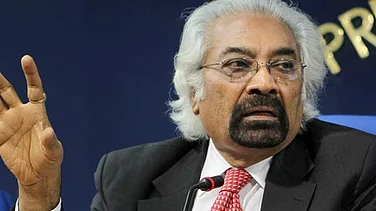Political defections predate Gaya Lal, Congress MLA from Haryana who switched parties two times in one day in 1967. After eventually gaining his commitment, veteran Congress leader Rao Birender Singh famously declared at a news conference in Chandigarh, 'Gaya Ram ab Aaya Ram hai'. Rao Birender Singh must have had no idea that the statement, with a few word tweaks, would become a political catchphrase in Indian politics.
After a couple of decades, through the 52nd Amendment, Rajiv Gandhi's administration enacted anti-defection law in order to curb the politics of defection. MPs and MLAs who switch parties are subject to punishment under the anti-defection statute. It enables a group of MPs and MLAs to join or combine with another political party without incurring the defection penalty. The anti-defection legislation was enacted to ensure that a party member does not disobey the party's instruction (whip), and if they do, they would lose their enrolment in the House.
Advertisement
The legislation applies to both Parliament and state legislatures. Furthermore, political parties are not penalised for soliciting or tolerating defecting legislators.
The law and Speakers' power
- Under Anti-defection, defection of legislators can be described under four distinct situations:
- Voluntarily giving up membership in their political party, lawmaker's words and behaviour within and outside the legislature might influence the decision to willingly resign,
- If lawmakers vote contrary to the directions of the political party they are affiliated with,
- Nominated lawmaker can join a political party no later than six months after being assigned to the House and,
- Independent candidate joins a political party after the election.
Advertisement
Any lawmaker who breaks the law in any of these circumstances may be punished for defecting. In such instances, the Speaker has to make the final decision. The Supreme Court in Kihoto Hollohan (1992) was asked if the authority granted to the Speaker violated the notion of basic structure. The apex court affirmed the basic structure theory and stated that the Speaker's choice was susceptible to judicial review.
The Speaker or Chairperson must make a decision in a defection matter, although there is no deadline specified by law. When the politics necessitated it, Speakers either acted quickly on defection procedures or delayed acting on them for years. Often, a Speaker has delayed ruling on cases until the end of the session. Last year, the Supreme Court fired a minister from Manipur after the Speaker refused to hear his defection case for three years. The court said that Speakers should, preferably, rule on a defection petition within three months.
The anti-defection statute has had little success since its inception. However, it has seriously weakened the legislative system. It has had a deleterious impact on legislative debates. For fear of retaliation from their political parties, our politicians are increasingly unwilling to share their views on legislation and policy matters. And, because the Speaker's office is the final decision-maker in anti-defection procedures, the non-partisan constitutional office has been drawn into party politics.
Misuse of the law in recent times
Given the atrocious manner in which this provision of the law was being misused, lawmakers repealed the section on the division entirely. This meant that people who deserted in groups of one-third of the party would also be excluded. Another exemption provided by the legislation is called merger.
Advertisement
The exception is included in paragraph 4 of the 10th Schedule and is often utilised currently. In accordance with paragraph 4, a lawmaker who asserts that their original political party has merged with another and that the concerned lawmakers and others who make up two-thirds of the whole membership have joined that party shall not be disqualified.
Recent examples include widespread defections in a number of states claiming Paragraph 4 of the 10th Schedule. In fact, in Goa, a majority of the Congress legislators defected to the Bharatiya Janata Party (BJP). In Arunachal Pradesh, the entire Congress legislature party along with its leader joined the BJP, invoking the merger provision. These are flagrant violations of the 10th Schedule.
Advertisement
Parties sometimes have to isolate MLAs at hotels to keep them from switching allegiances or being recruited by a rival party or an opposing group within their own party. Rajasthan, Maharashtra, Karnataka, and Tamil Nadu are current cases.
The situation in Maharastra was not different from what happened in other states recently. During the Maharashtra political crisis, 37 MLAs formed the rebel group. The 37 rebel MLAs account for two-thirds of the Shiv Sena's legislative assembly strength. If they join forces with the BJP, they may be able to destabilise Uddhav Thackeray administration. However, the MLAs in this state do not wish to split from Shiv Sena and instead want to act as a distinct group while supporting the BJP-led administration. The anti-defection legislation prohibits the formation of groups by the original political party to create an alternative government with the assistance of another party.
Advertisement
Since the disqualification of MLAs is sub-judice in the Supreme Court and the Supreme Court itself ordered a floor test in the state, it has created another disastrous precedent to find a gap in the anti-defection law. This can and will be used by parties to topple governments by horse-trading.
Time has arrived where there is a dire need to relook at the anti-defection law and remove paragraph 4 from the statute. Otherwise, such incidents to topple governments will continue to happen and the mandate of the people and the democracy will be at stake.
(Kamya and Kartikeya are Delhi-based law students.)




















